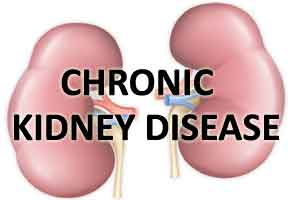- Home
- Editorial
- News
- Practice Guidelines
- Anesthesiology Guidelines
- Cancer Guidelines
- Cardiac Sciences Guidelines
- Critical Care Guidelines
- Dentistry Guidelines
- Dermatology Guidelines
- Diabetes and Endo Guidelines
- Diagnostics Guidelines
- ENT Guidelines
- Featured Practice Guidelines
- Gastroenterology Guidelines
- Geriatrics Guidelines
- Medicine Guidelines
- Nephrology Guidelines
- Neurosciences Guidelines
- Obs and Gynae Guidelines
- Ophthalmology Guidelines
- Orthopaedics Guidelines
- Paediatrics Guidelines
- Psychiatry Guidelines
- Pulmonology Guidelines
- Radiology Guidelines
- Surgery Guidelines
- Urology Guidelines
DOAC use linked with higher bleeding risk in patients of CKD

Certain anticoagulants approved to treat atrial fibrillation (AF) may cause a higher risk of bleeding in patients suffering from chronic kidney disease, according to the results of a study published in the Clinical Journal of the American Society of Nephrology (CJASN).
Within a cohort with estimated glomerular filtration rates (eGFR) under 60 ml/min/1.72 m2, DOAC users experienced similar rates of ischemic stroke but had a 23% higher risk of bleeding compared to warfarin users.
Read Also: Apixaban -A safer anticoagulant for AF patients on dialysis: Circulation Study
Direct oral anticoagulants, which are a certain type of blood thinners used to treat atrial fibrillation, are cleared by the kidneys to varying degrees, and their elimination is slower in individuals with CKD. This leads to drug accumulation and a greater risk of bleeding events. Though DOAC use has proven to be more effective than warfarin in preventing ischemic stroke and decreasing risk of bleeding in the general population but DOAC clearance is slower in patients with CKD, which result in drug accumulation and a greater risk of bleeding. However, these medications have been approved by the US Food and Drug Administration for use in patients with advanced kidney disease.
Jung-Im Shin and his associates did a systematic literature review and examined the electronic health records of 3206 patients with atrial fibrillation who used direct oral anticoagulants and similar 3206 patients with atrial fibrillation who used the conventional anticoagulant warfarin.
The authors analyzed that :
- There were 1181 bleeding events and 466 ischemic strokes over 7391 person-years of follow-up. (A person-year is the number of years of follow-up multiplied by the number of people in the study.)
- In patients without CKD, the risk of bleeding and the benefits of preventing ischemic stroke between direct oral anticoagulant and warfarin use were similar.
- On the other hand, patients with CKD who took direct oral anticoagulants had a 23% higher risk of bleeding compared with those on warfarin, but similar benefits from prevention of ischemic stroke.
“Despite sparse evidence in safety and effectiveness of direct oral anticoagulants in CKD, we saw that prescription of direct oral anticoagulants in the CKD population increased substantially over time. We also found that direct oral anticoagulant use was linked with a higher risk of bleeding compared to warfarin use in patients with CKD.” said Dr. Shin.
The study concluded CKD patients who took direct oral anticoagulants for atrial fibrillation had a slightly higher risk of bleeding compared with those on warfarin, but similar benefits from prevention of ischemic stroke.
For reference log on to http://cjasn.asnjournals.org/content/early/2018/07/11/CJN.13811217.abstract?sid=7929c850-4473-411e-954c-4953771cb725

Disclaimer: This site is primarily intended for healthcare professionals. Any content/information on this website does not replace the advice of medical and/or health professionals and should not be construed as medical/diagnostic advice/endorsement or prescription. Use of this site is subject to our terms of use, privacy policy, advertisement policy. © 2020 Minerva Medical Treatment Pvt Ltd